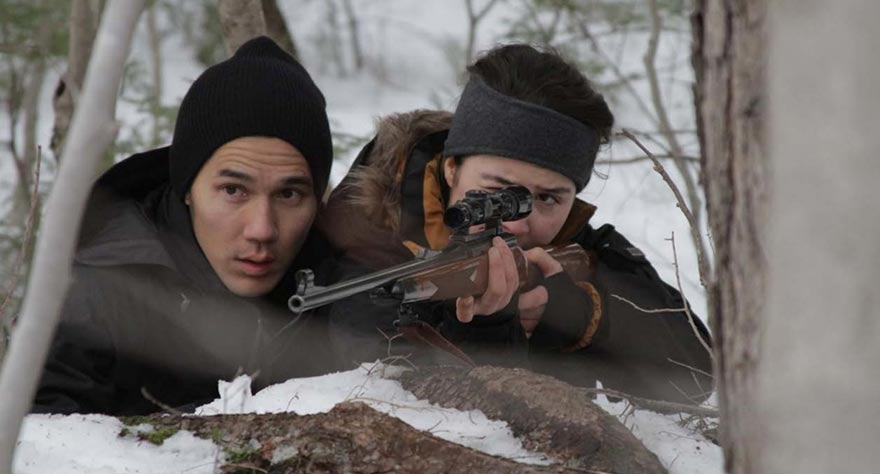
A post-apocalyptic world ups the emotional tension in this tale of siblings searching for their family.

A post-apocalyptic world ups the emotional tension in this tale of siblings searching for their family.
Historically, post-apocalyptic films have been filled with dread, bleakness, and no hope for the future. Kristjan Thor’s Astraea opens up with a sign of compassion in a world gone mad, which becomes a recurring theme in the film. Instead of intense action sequences, doomsday gangs, and swarms of villains, Astraea utilizes a low-key, character-driven story to tell the tale of the human struggle to remain hopeful during the darkest of times
After an event known as “the Drop,” most of the earth’s populationis wiped out as human beings drop dead without warning. As a result, the survivors are left in a world of violence and hardship. On their way to Nova Scotia to meet up with their grandmother, teenager Astraea (NereaDuhart) and her brother Matthew (Scotty Crowe) trek through the wintry landscape, surviving off of canned food. They live virtually a rinse-and-repeat life until they run into James (Dan O’Brien) and Callie (Jessica Cummings), who have taken up shop in a suburban home. After moving in with the couple, Matthew grows closer and closer with Callie, much to the disdain of James. As tensions rise, Astraea begins to have what she believes to be psychic premonitions.
Where Astraea really succeeds, where many films of its nature fall apart, is in Thor’s crafting of an honest depiction of life after an earth-shattering event, rather than heightening the drama in more silly ways. There are no zombies, mutants, aliens, or other supernatural beings running around, nor are there armies of bandits attempting to skin survivors. There are just bleak, empty landscapes and a handful of people trying to get by. The superb production design doesn’t feature decrepit or vandalized locations. Instead, the areas look relatively normal, just emptier and void of electricity and people. There’s a genuine sense of struggle, danger, and devastation in the aesthetic.
During the opening fifteen minutes there is a voiceover narration but almost no spoken dialogue between the two leads, which really adds to the already heavy sense of desolation. Even in its subtlety the film stresses the bleakness that the end of the world has created. Astraea carries around a sound recorder with her parents’ voicemail greeting saved and frequently listens to it throughout the film—a truly heartbreaking, sobering aspect. There’s the heart of Astraea. It’s completely depressing in a way that somehow allows its audience to feel hopeful and positive about the future. Though survival is surely unlikely, it is completely possible, and with characters who are easy to cheer for, it’s easy to get overwhelmingly invested in their story.
The acting on display is great all-around, with Duhart delivering a true standout performance in her film début. Young people can sometimes weigh down and annoy in tales of survival, but Astraea is a genuinely interesting and likable character. Having a sixteen-year-old girl lead a post-apocalyptic film (without donning a bow and arrow and fighting in any hand to hand combat) is a unique choice that truly pays off here. Scotty Crowe has a boy next door style of charm that helps create a believable onscreen chemistry with Jessica Cummings, and Dan O’Brien manages to make a curmudgeonly, jealous pessimist sympathetic. Rarely will you find a cast list that is as solid from top to bottom as the one in Astraea.
In 97 minutes, Astraea provides a more honest and emotionally taxing look at the psyche of those struggling to survive the apocalypse than The Walking Dead has in five seasons. It’s simply a good film with emotional stakes and personal dynamics providing the tension, while the world appears to be ending in the background. Those who can check their apocalyptic assumptions at the door, of high-action or zombie-filled adventure, won’t be disappointed with this one.